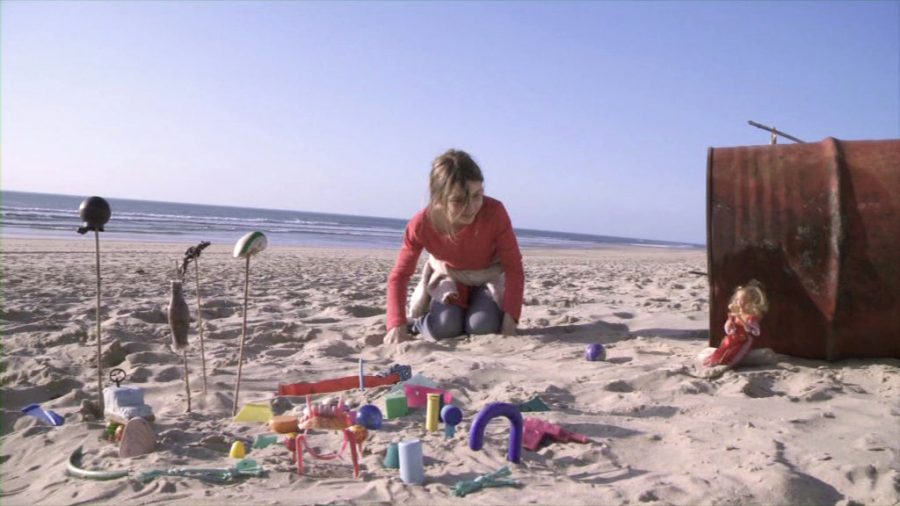On general release from Fri 17 Oct
Agnès Troublé / France / 2014 / 120 mins
[Editor’s note: this review contains spoilers]
A dramatic cut away from her usual occupation as a fashion designer, Agnès (of agnès b) Troublé’s directorial debut, My Name is Hmmm…, lacks the sophistication and quality of her designs. Grappling with the dark and complex themes of sexual abuse and paedophilia, it presents a disappointingly superficial and crude narrative that fails to render the subtleties of its subject.
Centred on Céline, pre-pubescent and the eldest of three, the film follows as she escapes her home-life nightmare to travel the road with truck-driver and surrogate father figure, Peter. While her mum struggles to earn enough for the family, Céline plays mother at home – a role that extends to wife in the eyes of her father. Clearly depressed and unable to find himself a job, he transfers this pain onto young Céline in the form of sexual abuse. The film clumsily presents this, however, reducing individuals and their troubled psyches to stock-characters and one-dimensional emotional states.
The film has inflections of feminist director and professor Agnès Varda’s celebrated Les Plages D’Angès, yet whereas the experimental nature of Varda’s cinematography infuses her production with a freshness, in Troublé’s it simply reinforces an artistic inadequacy. Apart from a handful of photographic stills which display an eye for beauty, the film is a cacophonic blend of images. Various coloured gels are used to shade “poignant” moments while the jerky editing cuts together countless close up shots of people looking anxious. At times the camera shoots a television screen showing the film in a bizarre move toward the Meta. The overall effect is a production that resembles something between a soap opera and experimental art piece. On top of all this, scrawls the signature writing of agnès b, incongruously connecting the fashion label to the film’s dubious content.
Most shocking is the film’s ending: the tragic fate of Peter acts as a catalyst for Céline and her father’s uncomfortable reunion. The two share a disturbing moment outside the hospital, in which he promises not to ‘bother’ her again and the two embrace in platonic union. The film seemingly absolves him of accountability – an unsatisfying and worrying resolve to a serious problem that boarders on the territory of rape apology. In its epilogue, the voice over of a now much older Céline makes a case for her forgiveness and silence, but the film’s hitherto lack of nuance prevents this from being convincing – in fact, it pushes it over into the realm of farce.
